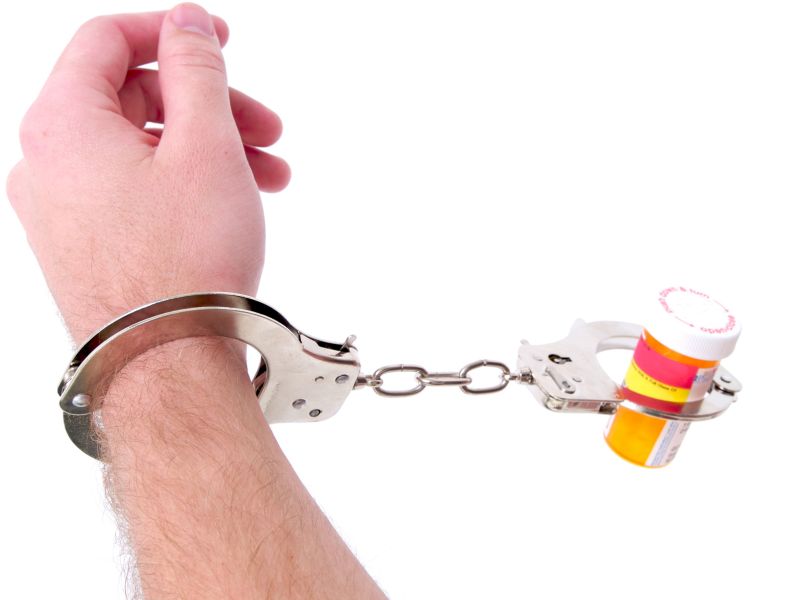THURSDAY, Sept. 26, 2019 (HealthDay News) — A constant barrage of news on America’s opioid epidemic stokes feelings of hopelessness, and with good reason: Every day, more than 130 people are dying from overdoses, according to government statistics.
But amid the harrowing stories, there’s some good news: It is possible to recover from an opioid addiction.
That’s the primary message from a study published recently in the Journal of Addiction Medicine, in which an estimated 1.2 million American adults reported recovering from an opioid addiction.
While the research demonstrated that an opioid problem can be overcome, it also showed that the road to recovery is likely to be long and challenging. It will also require more resources than it takes to kick an alcohol problem.
“It can take up to five years of continuous remission before the risk of symptoms drops to levels seen in the general population,” said study lead author Lauren Hoffman, a research fellow at Massachusetts General Hospital’s Recovery Research Institute and Harvard Medical School.
Using data from the 2017 National Recovery Survey, Hoffman and her team analyzed treatment and recovery services used by U.S. adults who had resolved opioid problems compared to those who had overcome an alcohol problem. Results showed stark differences between the two groups’ recovery route.
By mid-recovery (between one and five years), individuals who had resolved an opioid problem were four times more likely to have used pharmacotherapies (drugs to prevent cravings or relapse such as methadone or buprenorphine), two-and-a-half times more likely to use formal addiction treatment (such as cognitive behavioral therapy), and around two times more likely to use recovery support services and mutual help organizations than adults in mid-recovery from an alcohol problem.
Mid-recovery, adults recovering from opioid abuse also were more likely than those battling alcohol issues to report low self-esteem. During early recovery, the groups didn’t exhibit these differences.
The study “implies that perhaps those who have an opioid problem might need to utilize more services or utilize services for a longer period of time to maintain recovery and achieve recovery durations beyond one year,” Hoffman observed.
The findings don’t come as a surprise to some addiction experts.
“Once you are dependent on opioids, you are more likely to fall into the category of having a more severe problem,” said Frederick Muench, president of the Center on Addiction.
The study, he said, reinforces the need to incentivize recovery supports over long periods of time. This isn’t something the U.S. treatment system historically has advocated for, explained Muench. “Ongoing support isn’t necessarily covered by insurance,” he said.
Treatment services’ prohibitive costs and scarcity, especially in rural areas, have long been blamed as the primary obstacles standing in the way of recovery from opioid dependence. But Muench points to some positive trends. Notably, they include recent federal funding increases allocated to medication treatment for drug recovery, as well as recognition by the medical community of addiction medicine as an official subspecialty of preventive medicine.
As policymakers become more aware of the need to adequately address opioid use, the stigma that opioid users feel may simultaneously decline. That would be another step in the right direction for recovery, experts believe.
“Individuals with opioid use disorder are less likely to disclose their recovery status,” said Hoffman. Unlike alcohol use, which is more widely accepted, she sees the shroud of secrecy and stigma surrounding the use of opioids as detrimental, making countless individuals afraid to reach out for help. Knowing that there is hope for opioid users may spur them to seek outside assistance, she added.
For these reasons, professionals in the addiction field applauded Hoffman and her team for addressing recovery as part of their research.
“We mostly focus on the mortality of opioid users. Of course, it’s devastating. But we need to pay attention to the fact that people can recover,” said Dr. Wilson Compton, deputy director of the U.S. National Institute on Drug Abuse.
The new research may have put opioid recovery on the map. But for Hoffman, it spurs new inquiries.
“Recovery doesn’t look the same for everyone. It’s going to vary by substance, at the very least,” she suggested. “Those who suffer from an opioid problem might need prolonged clinical care or additional recovery support to maintain recovery in the long term.”
More information
There’s more on fighting drug addiction at the U.S. National Institute on Drug Abuse.
Copyright © 2026 HealthDay. All rights reserved.

